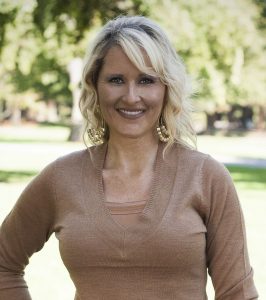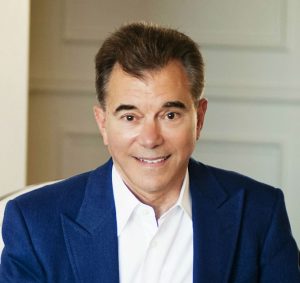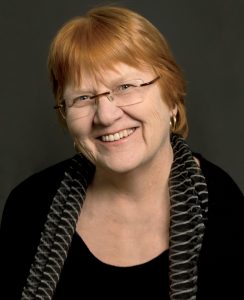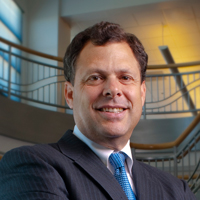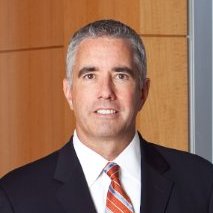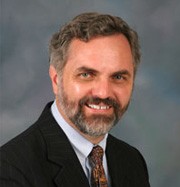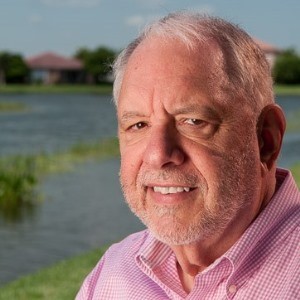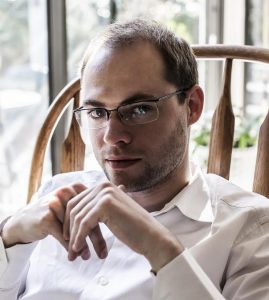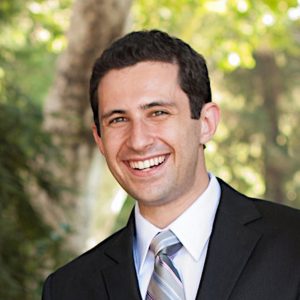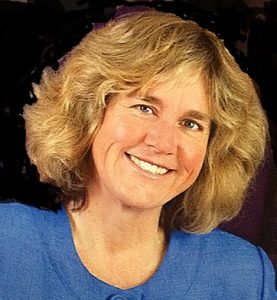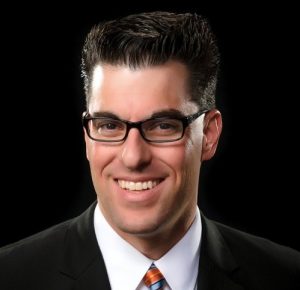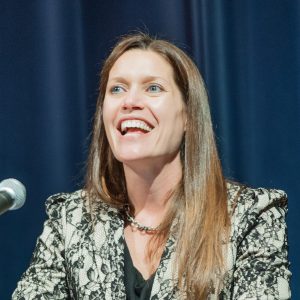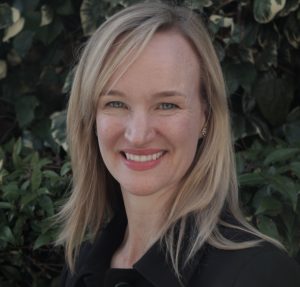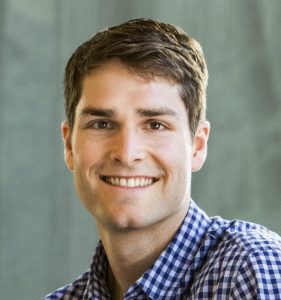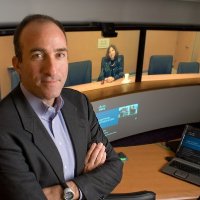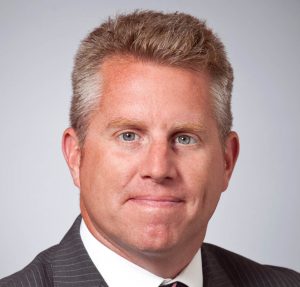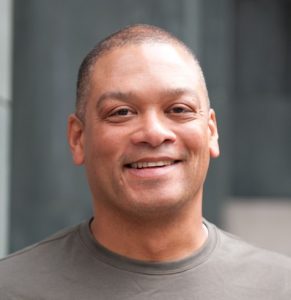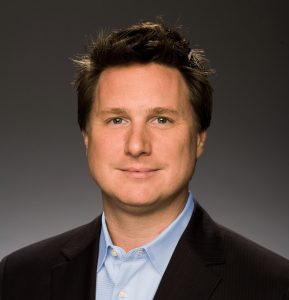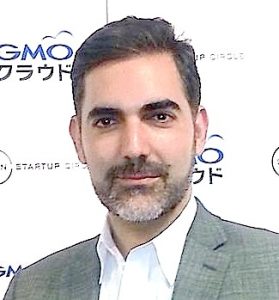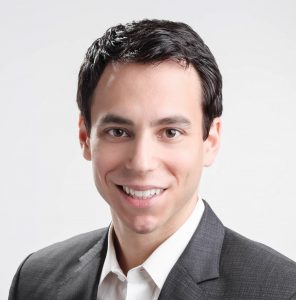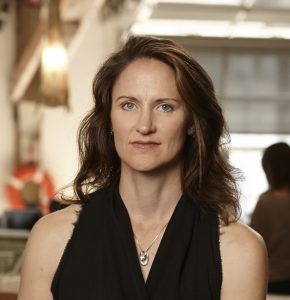 Codex FutureLaw 2015
Codex FutureLaw 2015
Speakers
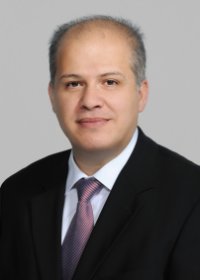
Khalid Al-Kofahi is Vice President of Research and Development at Thomson Reuters. He is a founding member of R&D and has been with R&D since joining Thomson in 1995.
Thomson Reuters R&D performs applied computer science research to help the business design innovative and smarter products. Their research covers a number of areas including natural language processing, information retrieval, document classification, clustering, document summarization, recommender systems, question answering, data mining, social computing, quantitative finance and machine learning.
Khalid is a scientist by education, a problem solver by hobby, a technologist by career, but is most excited about developing systems that fundamentally improve the information experience of Thomson Reuters customers – how they create content, how they find it, how they interact with it and how they act upon it. As a member of – and later as the head of – R&D, Khalid has been part of many innovations in the legal industry, from classifying headnotes to the key number system in the late nineties to West Search (the search engines powering WestlawNext) in 2010. Khalid’s research interests include information retrieval, document classification, recommender systems, natural language processing, data mining, machine learning and image processing. Khalid has a Ph.D. from Rensselaer Polytechnic Institute, USA, a M.S. from Rochester Institute of Technology, USA, both in Computer Engineering, and a B.S. in Electrical Engineering from Jordan University of Science and Technology, Jordan.
___________________________________________________________
Pablo Arredondo is Vice President of Legal Research at Casetext and a Fellow for CodeX.
Pablo graduated from Stanford Law School. After litigating patents at large New York and California law firms, Pablo co-founded Occam, a VC-backed startup centered on his innovations in legal research technology. Pablo is currently a fellow at the Stanford Center for Legal Informatics where his work focuses on identifying and leveraging patterns in common law opinions.
___________________________________________________________
Sheri Atwood is the Founder & CEO of SupportPay by Ittavi, and a former Silicon Valley executive. Sheri is a child of a bitter divorce who also went through her own divorce a few years ago, and created SupportPay when her search for a better way to exchange and communicate about child support payments with her ex-husband proved fruitless.
SupportPay®, Ittavi’s first product, is the first-ever automated child support payment platform, poised to transform the complex, time-consuming & stressful process that impacts nearly 300 million parents exchanging more than $900 billion in child support & child expenses worldwide. With SupportPay, today’s modern families can spend less time managing and arguing about child support, and more time focused on raising happy, healthy children.
Prior to starting SupportPay, Sheri was a former Vice President at Symentec and has also been named “#5 of 50 Women in Tech Dominating Silicon Valley” and “Top 40 Under 40 Executive in Silicon Valley”. She is energetic, resourceful & lives by the motto “Don’t talk about it, be about it!”
___________________________________________________________
Harm Bavinck is is a Dutch entrepreneur working in legal informatics since 2000 and specialized in legal management. He received his law degree from the Vrije Universiteit in Amsterdam in 1995. He is well known for his expertise on contract management, corporate governance, compliance and other legal management work. Over the years, Harm has worked on over a hundred legal management projects for international companies including IBM, ING Bank, TomTom, and AlpInvest.
In 2002, Harm co-founded the Dutch software company Effacts. In this role, he has been working on the improvement of legal work by the use of smart technology. At Codex, Harm initiated a research project on the implementation of computable contracts. Harm and his team of legal and information technology professionals are working on actual business cases that use artificial intelligence in contract management. The goal of the project is to make contracts easier to use, to reduce transaction costs, and to improve legal and other risk control.
___________________________________________________________
Ralph Baxter is Senior Advisor and Chairman of the Legal Executive Institute at Thomson Reuters and Senior Advisor at the Stanford Law School.
Ralph Baxter advises, writes, and speaks about the delivery of legal service. After leading a prominent global law firm for nearly a quarter century, he has turned his attention to a diverse set of activities, across the spectrum of the evolving legal profession.
Mr. Baxter is a Senior Advisor and Chairman of the Legal Executive Institute at Thomson Reuters Legal.
He is a member of the board of directors of Lex Machina.
He is an Advisor to Ravel Law.
He is a Senior Advisor and member of the Advisory Board of the Stanford Law School Center on the Legal Profession.
He is a member of the Advisory Board of the Harvard Law School Center on the Legal Profession.
He is a member of the Advisory Board of the Center for the Study of the Legal Profession at the Georgetown Law Center.
From 1990 to 2013, Mr. Baxter served as Chairman and CEO of Orrick, leading Orrick’s progress from a domestic firm with California origins to become one of the world’s leading global firms. He launched numerous transformative initiatives during his tenure, including the creation of Orrick’s Global Operations Center in Wheeling, West Virginia, and changes in the firm’s talent and pricing models.
Mr. Baxter received his JD from the University of Virginia; His MA in Education from the Catholic University of America; and his BA from Stanford University.
___________________________________________________________
Monica Bay is a lawyer, consultant and journalist. She recently retired from ALM, where she served as editor-in-chief of Law Technology News for 17 years and as senior editor at San Francisco’s The Recorder for 13 years. Long active in cyberspace, she helped “The Late Show with David Letterman” establish its first website on America Online. She is a graduate of the University of California Santa Cruz, with honors; did graduate work in sociology and journalism at the University of Minnesota; and earned her J.D. at the University of San Francisco. A member of the California bar, Ms. Bay lives in New York City and can often be found at Yankee Stadium.
___________________________________________________________
Josh Becker is CEO at Lex Machina. As CEO, Josh leads strategy and operations for Lex Machina and is a thought leader on intellectual property trends and leveraging technology to improve the practice of law.
Josh was part of the Founding team of Dice.com (NYSE:DHX) and ran corporate development at Agile Software (sold to Oracle). He was a Venture Capitalist at Redpoint Ventures and then a Founding General Partner of New Cycle Capital. Previously he also worked at McKinsey & Co. and Netscape.
Josh runs Startup2Startup, an entrepreneur dinner/discussion group and is active with the Stanford Angels and Entrepreneurs. He Chairs the Full Circle Fund, a coalition of technology and business leaders that collectively funds and supports leading social entrepreneurs.
Josh earned a joint J.D./M.B.A. from Stanford University and a B.A. from Williams College.
___________________________________________________________
Mark Chandler is Senior Vice President, General Counsel and Secretary, and Chief Compliance Officer, of Cisco, where he manages a team of 450 professionals, including legal, employee relations, ethics, investigations and brand protection teams. Previously, he was Managing Attorney for the Europe, Middle East and Africa region, based in Paris. Chandler joined Cisco in 1996 upon the acquisition of StrataCom, Inc., where he had been general counsel. Prior to working at StrataCom he worked for six years as vice president for corporate development and general counsel of Maxtor Corporation, a manufacturer of hard disk drives.
Chandler is also a member of the Dean’s Advisory Council of Stanford Law School, the Board of Trustees of Belmont Hill School in Belmont, Massachusetts, the US Department of Commerce Manufacturing Council, and the Advisory Council of the Woodrow Wilson International Center for Scholars in Washington. He has previously served as member and chairman of the City of Palo Alto Planning Commission, and as a member of the Palo Alto Utilities Advisory Commission. In 2010, The National Law Journal named him one of the 40 Most Influential Lawyers of the Decade and in 2013, American Lawyer numbered him among the “Top 50 Big Law Innovators of the Last 50 Years.”
Chandler holds a bachelor’s degree in economics, summa cum laude (1978) from Harvard College, where he was elected to Phi Beta Kappa, and a juris doctor degree from Stanford Law School (1981).
___________________________________________________________
Karl Chapman is Chief Executive of Riverview Law and has a long pedigree in starting, growing and managing successful companies.
After reading law at Birmingham University, Karl joined Guinness Mahon Investment Management (GMIM) in 1985. In 1987 he was Money Observer’s top-performing UK unit trust fund manager.
He left GMIM in 1989 to set up CRT Group plc (CRT), a consultancy, recruitment and training business. Under Karl’s leadership his team grew CRT, both organically and by acquisition, to a market capitalisation of over £600 million, sales in excess of £400 million with 2,500 employees operating from over 200 locations. In 1996 CRT sold 50.1% of its equity for £109 million to Knowledge Universe, a private US-based company whose major shareholders were Larry Ellison and Michael Milken.
Karl left CRT in 2000 and set up AdviserPlus Business Solutions in 2001. AdviserPlus is a leading advisory outsourcing organisation providing HR, and H&S solutions to organisations ranging from FTSE 100 companies to SMEs. He joined Riverview Law with effect from 1 June 2011
Karl is excited by the changes taking place in the legal market: “Rarely do market opportunities like this arise. The legal market is large, fragmented and has few brands. New entrants like Riverview Law, with no baggage and a total focus on the customer, stand a very good chance of building big and sustainable businesses.”
Karl is based in London and Lincolnshire and couples his passion for business with a long-standing love of Chelsea Football Club where, over more than forty years, he has experienced the lows and highs that come with an irrational attachment to a football team.
___________________________________________________________
Kevin Colangelo is Vice President, Strategic Accounts at Bloomberg BNA. A veteran business development executive, legal services entrepreneur, and corporate lawyer, Kevin Colangelo is Vice President, Head of Strategic Accounts at Bloomberg Law in New York, where he works with lawyers and law firms on strategies to help grow revenue and control costs through the deployment of leading edge technology solutions.
As a member of the leadership team at legal outsourcing pioneer, Pangea3, Kevin was integral in the development of its workflow and delivery models, as well as overseeing Pangea3’s growth from 30 attorneys to over 800 attorneys in five years. He held multiple leadership roles, including global head of the Corporate Practice, General Counsel, and relationship manager for many of Pangea3’s largest global clients.
He has also held leadership positions at three Am Law 100 firms, including Proskauer Rose, where he served as the firm’s first Client Relations Officer, and Kramer Levin, where he was Co-chair of the Outsourcing and Technology Transactions practice. Most recently, Kevin was a member of the leadership team at Elevate Services, a global legal software and managed services company.
Kevin speaks frequently and is quoted widely on legal innovation, client relationship management, process improvement and legal process outsourcing. He has been featured in segments and articles in numerous media outlets, including the ABA Journal, the New York Law Journal, Lawyers Weekly, Metropolitan Corporate Counsel, Outsourcing Magazine and Bloomberg Television.
Kevin graduated from Hamilton College and earned his law degree from Vermont Law School, cum laude. Kevin is a member of the New York Bar, and is admitted to the U.S. Court of International Trade.
___________________________________________________________
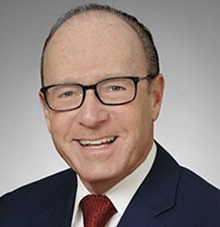
Dan Cooperman is Of Counsel at DLA Piper. Dan Cooperman focuses his practice on corporate governance and board of directors issues and consultation pertaining to the organization and management of a global legal department and global law firm.
Dan has a nearly 40-year career in law and business, most notably serving from 1997 until 2007 as senior vice president and general counsel at Oracle under Larry Ellison and from 2007 to 2010 as senior vice president and general counsel of Apple under Steve Jobs. With DLA Piper, he continues to focus on issues related to corporate governance and boards of directors, as well as the role of the general counsel and management of global corporate law departments.
Dan also serves as a member of the board of directors of Molina Healthcare, Inc., a Fortune 500 managed care company, as well as several startup companies. He serves as a strategic advisor to Institutional Venture Partners, a premier late-stage venture capital firm, and its portfolio companies.
___________________________________________________________
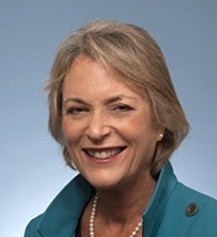
Karen Cottle is a senior counsel in Sidley’s Corporate Governance and Executive Compensation group and located in the firm’s Palo Alto office. Prior to joining Sidley, she was senior vice president, general counsel and corporate secretary of Adobe Systems Incorporated (NASDAQ: ADBE), for 10 years. Karen brings her years of on the ground experience to the legal issues that are of most concern to management and in-house lawyers at global technology and other growth companies.
As a member of Adobe’s senior management team, Karen was involved in all aspects of the company’s business, and managed the global legal function with responsibility for all matters including corporate governance, securities, M&A, compliance, intellectual property, licensing, product support, litigation, public policy, privacy and anti-piracy enforcement.
Prior to joining Adobe, Karen served as general counsel for Vitria Technology, Inc., where she served as the first general counsel for the public software company and was responsible for all legal matters. Karen also previously worked at Raychem Corporation as division counsel before being promoted to vice president, general counsel and secretary of the company.
In 2012 Karen received Corporate Board Member Magazine’s Top General Counsel Award, and a Transformative Leadership Award from Inside Counsel magazine. Karen is recommended in Technology: Data Protection and Privacy in the Legal 500 US 2014.
Karen served as law clerk to the Honorable Spencer Williams, United States District Court, Northern District of California.
___________________________________________________________
Abe Geiger is the Founder and CEO of Shake, a mobile-first platform that allows users to create, sign, and send legally binding agreements. Prior to Shake, Abe held various roles at early-stage technology startups in both New York and the Bay Area including Director of Sales and Marketing at Affinity Circles, the first private label social network provider, VP of Marketing and Biz Dev at iSoccer, a youth sports development platform, and product, biz dev, and marketing consulting roles at Change.org, Palantir, CampusGroups, and HireLabs. While in business school, Abe worked at both Canaan Partners and Greycroft sourcing and analyzing investment opportunities. During that time he co-founded the NYC Turing Fellows program to bring more engineering talent to NYC startups. He is also on the advisory board of America Scores NY, a non-profit after school program for urban youth.
Abe received his BA in Political Science from Stanford, where he also captained the Varsity soccer team for three years, and his MBA from Columbia where he was the President of InSITE.
___________________________________________________________
Oliver R. Goodenough is Director of Center for Legal Innovation and Professor of Law at Vermont Law School.
Professor Goodenough’s research and writing at the intersection of law, economics, finance, media, technology, neuroscience and behavioral biology make him an authority in several emerging areas of law. He is expert in the impact of digital technology on law, with a particular emphasis on using the internet to create digital business organizations and to improve the support provided by law for innovation and entrepreneurship generally. A pioneer in Neurolaw, he has participated in experiments using fMRI brain scanning techniques to explore the neurological basis of moral reasoning in conjunction with Humboldt University in Berlin and the University of London.
His academic appointments reflect the breadth of his studies. At Vermont Law School, he is a Professor of Law and the Director of Scholarship. He is also currently a Faculty Fellow at The Berkman Center for Internet & Society at Harvard University, where he is co-director of the Law Lab project, a Research Fellow of the Gruter Institute for Law and Behavioral Research, and an Adjunct Professor at Dartmouth’s Thayer School of Engineering. He has also been a Visiting Research Fellow at the Zoology Department of the University of Cambridge, a Lecturer in Law at the University of Pennsylvania Law School and a Visiting Professor at the Neurological Department of the Charite Medical School of Humboldt University in Berlin. He has participated as faculty for The National Judicial College since 2004. Professor Goodenough has also served as co-director of the Education and Outreach Program of the MacArthur Foundation Law and Neuroscience Project.
Professor Goodenough has written on a wide variety of subjects relating law, business, the internet, and cognitive and behavioral science. His chapter “Digital Firm Formation” in the Kauffman Foundation book Rules for Growth (2011) has sparked reforms in corporate law. Law, Mind and Brain, co-edited with Michael Freeman, was published by Ashgate in February, 2009. With Semir Zeki, he edited the 2004 special issue of the Philosophical Transactions of the Royal Society devoted to Law and the Brain, reprinted in book form under that title by Oxford University Press in 2006. He is co-author of This Business of Television, now in its third edition. His shorter works include articles and chapters on law and neuroscience, intellectual property, the transmission of culture, and, with Richard Dawkins, a report in Nature on chain letters as evolving ‘mind viruses’.
Professor Goodenough received his BA from Harvard University and his JD from the University of Pennsylvania. After graduation, he practiced law in New York, first as an associate with Cleary, Gottlieb, Steen & Hamilton and then with Kay, Collyer & Boose, where he was became a partner. In 2000 he won the Lee Loevinger Jurimetrics Research Award for his work on law and neuroscience, in 2002 the Gruter Institute Bene Merenti Award for outstanding achievements in law and behavioral research, and in 2010 the Vermont Law School Richard Brooks Faculty Scholarship Prize for scholarly achievement.
___________________________________________________________
Richard Granat is a lawyer and a recognized expert on the delivery of legal services over the Internet. He serves as Co-Director of the Center for Law Practice Technology, Florida Coastal School of Law. Richard created one of the first virtual law firms in the United States and also was the Founder of DirectLaw, Inc., a virtual law firm platform provider.
Richard also had served as Co-Chair of the eLawyering Task Force of the Law Practice Management Section of the American Bar Association and is a liaison member of the American Bar Association Standing Committee on the Delivery of Legal Services. In 2009, the ABA Journal recognized Richard as one of 50 Legal Rebels, throughout the Unites States – individuals who are engaged in changing the legal profession. In 2010, Richard received the Louis Brown Lifetime Achievement Award from the American Bar Association in recognition of his innovations in the delivery of legal services and in 2013, the ABA James Keane Award for Excellence in eLawyering.
___________________________________________________________
Pieter Gunst is an Entrepreneurial Fellow at the Stanford Center for Legal Informatics (CodeX), organizes Code = Law (a learn-to-code course for law students), and became involved at StartX, three unique communities of entrepreneurs, legal tech innovators and law students. As a co-founder of LawGives, Pieter combines his legal and technical skills to build tools that aim to make legal help universally accessible.
Pieter obtained his Master of Laws Degree in Belgium (Magna Cum Laude, Ghent University, 2008) and subsequently worked in the Brussels office of the law firm DLA Piper. While working in the Intellectual Property and Technology department of DLA, he specialized in electronic commerce and telecom law, data protection, copyright law, domain name litigation and IT outsourcing. Pieter also worked on a major European Commission project involving a wide variety of legal instruments related to the information society, and practiced law in-house at a major international IT consultancy firm.
In 2010, Pieter was granted a scholarship from the Belgian American Educational Foundation (BAEF) and moved to Silicon Valley to attend Stanford’s Law, Science and Technology program. In 2015, he was selected for the Forbes 30 under 30 for Law & Policy.
___________________________________________________________

Edward Hartman is one of the co-founders and has served as Chief Strategy Officer since June 2000 at LegalZoom. Prior to LegalZoom, Mr. Hartman was the Chief Technology Officer at TROON, LTD, later acquired by Xceed International. Mr. Hartman was a creator of two web-based applications, MajorFind and Megaphone. He sat on the board of the Project Management Institute (Los Angeles Chapter) and is a current board member of the Brent Shapiro Foundation. Mr. Hartman received a B.S. in Computer Science and a B.A. in Anthropology from Yale University and an M.B.A. from the Wharton School, University of Pennsylvania Program for Executives in San Francisco, California, where he was designated a Palmer Scholar. He is a member of the California Bar.
___________________________________________________________
Jake Heller is the founder and CEO of Casetext. He was president of the Stanford Law Review and a managing editor of the Stanford Law & Policy Review. Jake clerked for the Honorable Michael Boudin, United States Court of Appeals, First Circuit. He then became a litigation associate at Ropes & Gray. He’s been programming since he was 9 and worked full-time as a web developer before law school.
___________________________________________________________
Bonnie Rose Hough is the Managing Attorney for the Center for Families, Children & the Courts of the Judicial Council of California and oversees its Access to Justice, Self Help, Family Law, Domestic Violence, and Tribal/State programs. She manages the Sargent Shriver Civil Counsel Pilot project and the Equal Access Fund providing over $24 million in funding for legal services agencies. She has been employed by the Judicial Council since August 1997. The focus of her work is on helping courts meet the needs of people who cannot afford counsel in civil cases. Before joining CFCC, she was in private practice in family law. She was a founder of the Family Law Center in Marin County and served as its executive director and lead attorney for six years. Bonnie attended Hastings College of the Law and also has a master’s in public administration. She received the Faye Stender award from California Women Lawyers, the Opening Doors to Justice award from the Public Interest Clearinghouse, the Award of Merit from the Legal Aid Association of California and the California Commission on Access to Justice for her work to increase access to the courts for low-income persons. She serves on the Executive Board of the National Self-Represented Litigation Network and the American Bar Association’s Standing Committee on the Delivery of Legal Services. She is a Fellow of the College of Law Practice Management and the Bellow-Sacks Access to Civil Legal Services at Harvard Law School.
___________________________________________________________
Chris Jochnick is Director of Private Sector at Oxfam America. Chris Jochnick leads Oxfam America’s work on business and development including shareholder engagement, value chain assessments, and collaborative advocacy initiatives. He has initiated a variety of innovative partnerships with Fortune 500 corporations.
Jochnick is the co-founder and former director of two nonprofit organizations devoted to economic and social rights. He has worked for more than 18 years on issues of human rights and corporate accountability, including seven years in Latin America supporting grassroots campaigns around extractive industries, sovereign debt, and trade agreements. Prior to joining Oxfam, Jochnick worked as a corporate attorney with the Wall Street law firm of Paul, Weiss, Rifkind, Wharton & Garrison LLP, where he advised companies on environmental and social responsibilities.
He is a graduate of Harvard Law School and a former fellow of the Echoing Green and MacArthur foundations. He teaches a class in business and human rights at Harvard Law School. Jochnick has been interviewed for NPR, The New York Times, and various trade publications.
___________________________________________________________
Daniel Martin Katz, associate professor of law at Michigan State University, is known as a rebel in the legal world. The American Bar Association Journal made it official when Dan was named to the 2013 Class of “Legal Rebels,” a prestigious group of change leaders in the legal profession.
Dan believes that many of today’s law students and practicing lawyers need hard, tech-savvy skills. He applies an innovative polytechnic approach to teaching law, meshing litigation knowledge with emerging software and other efficiency enhancing technologies to create lawyers for today’s challenging legal job market. Both his scholarship and teaching integrate math, science, engineering and technology in order to further his goal of building an institution that’s not your parents’ law school.
He put his ideas into practice in 2012 when he co-founded the ReInvent Law Laboratory, a collaborative venture in legal services. His forward-thinking curriculum helped to earn him acknowledgement in the 2013 Fastcase 50, an award which “recognizes 50 of the smartest, most courageous innovators, techies, visionaries, and leaders in the law.” In 2014, he was named to theexternal affiliated faculty at CodeX – Stanford Center for Legal Informatics.
Dan’s ideas on reinventing law have been featured in a variety of news outlets, and his research and technical papers have been published or are forthcoming in a variety of different scientific and legal journals.
In addition to teaching and researching, Dan is an Editor of the International Journal of Law and Information Technology (Oxford University Press) and a member of the Editorial Board of the Journal of Artificial Intelligence & Law (Springer Scientific). He serves on the Editorial Advisory Board for Law Technology News and is also a member of the ABA Task Force on Big Data and the Law.
Dan received his Ph.D. in political science and public policy with a focus on complex adaptive systems from the University of Michigan. He graduated with a Juris Doctor cum laude from the University of Michigan Law School and simultaneously obtained a Master of Public Policy from the Gerald R. Ford School of Public Policy at the University of Michigan.
Prior to joining the MSU College of Law faculty, he was a fellow in Empirical Legal Studies at the University of Michigan Law School and a National Science Foundation Integrative Graduate Education and Research Traineeship fellow at the University of Michigan Center for the Study of Complex Systems.
___________________________________________________________
Renee Newman Knake is a Professor of Law and the Foster Swift Professor of Legal Ethics at Michigan State University, where she also co-directs the Kelley Institute of Ethics and the Legal Profession. During the first half of 2015, she is a visiting scholar at the Stanford Law School Center on the Legal Profession and the American Bar Foundation in Chicago. She currently serves as the Reporter for the American Bar Association Commission on the Legal Profession, appointed by ABA President William Hubbard for his 2014-15 term. A primary area of Professor Knake’s scholarly focus addresses the intersection between the first amendment and the regulation of law practice; her publications in this area include Legal Information, the Consumer Law Market, and the First Amendment, 82Fordham L. Rev. 2843 (2014); Democratizing the Delivery of Legal Services, 73 Ohio St. L.J. 1 (2012); and Attorney Advice and the First Amendment, 68 Wash. & Lee L. Rev. 639 (2011). She is in the midst of authoring an article on antitrust law, the first amendment, and regulation of the legal profession. Among various honors, in 2013 she was named an ABA Journal Legal Rebel and one of the Fastcase 50, an annual award that “recognizes 50 of the smartest, most courageous innovators, techies, visionaries, and leaders in the law.” Before becoming a professor, Professor Knake practiced law at two large, international firms and served as an assistant city attorney in Charlottesville, Virginia, for several years. She is a graduate of the University of Chicago Law School.
___________________________________________________________
Alexa Koenig, Ph.D., J.D is the executive director of the Human Rights Center and a lecturer at UC Berkeley. She is an expert on U.S. detention and drone policies as well as the potential for technology to help bring war crimes suspects and human rights perpetrators to justice. A specialist in intellectual property and technology law, and a member of the Technology Advisory Board for the International Criminal Court’s Office of the Prosecutor, she leads meetings and workshops on the role of tech in human rights investigations. Koenig contributed to The Guantanamo Effect: Exposing the Consequences of U.S. Detention and Interrogation Practices (UC Press) and is the editor, with Keramet Reiter, of the forthcoming Extreme Punishment (Palgrave MacMillan), as well as co-author (with Eric Stover and Victor Peskin) of the forthcoming Hiding in Plain Sight: The Pursuit of War Crimes Suspects from Nuremberg to the War on Terror (UC Press). She co-teaches an undergraduate class on human rights, and graduate–level seminars on human rights and war crimes investigations.
___________________________________________________________
Dan Lear is currently the Director of Industry Relations for Avvo. He is a technology lawyer, facilitator, and blogger. He is the cofounder of the Seattle Legal Technology and Innovation MeetUp, a self-styled “legal hacking” group that meets regularly to explore, identify, and implement unconventional solutions to law’s problems, big and small. He’s also blogged and written extensively about the profession and its evolution on his blog Right Brain Law and for other online and print publications.
In his six years as a practicing attorney and more than ten years in the legal industry, Dan worked for two lean “NewLaw” law firms, designed and implemented an online program for procurement contract processing, and was a part of early international legal outsourcing efforts with a Fortune 500 company. He received his BA in International Studies from Brigham Young University, and his JD and MBA from Seattle University.
___________________________________________________________
Daniel Lewis is the CEO and co-founder of Ravel Law. Daniel earned his JD from Stanford Law and his BA from Johns Hopkins. At Stanford, he served as co-executive director of the Afghanistan Legal Education Project, was a summer associate at Cooley LLP, and consulted with Passport Capital. Prior to law school, Daniel worked as a national energy and transportation policy analyst at the Bipartisan Policy Center in Washington, DC. His past experience also includes work with the Natural Resources Defense Council and United States Senator Barbara Boxer. Forbes named Daniel to their 30 under 30 in Law & Policy in 2015.
___________________________________________________________
Paul Lippe is CEO of OnRamp Systems, the leader in Connected Contracts and expert systems to manage complexity, improve quality and reduce costs for large-scale legal projects and departments. Legal OnRamp was first developed at a legal department productivity and collaboration platform for Cisco Systems and is now the leading “bridge to practice” program for US law schools.
Paul was at various times General Counsel and Senior Vice President, Business Development and Corporate Marketing at Synopsys, an electronic design automation company. Paul was also CEO of Stanford SKOLAR, a medical digital library and e-learning company spun off from Stanford Medical School.
A graduate of Yale College and Harvard Law School, Paul speaks and writes regularly about the “New Normal” in law, including http://www.abajournal.com/legalrebels/new_normal/. Prior to law school he was a special assistant to Senator Daniel P. Moynihan (D. NY) and was Chairman of the Colorado Air Quality Control Commission. He is married to Nancy White Lippe and they have 4 children. When not on the Ramp, Paul splits his time between Concord, MA, Moffett Field, CA, Blue River, CO, the Acela, Virgin Atlantic and Virgin America.
___________________________________________________________
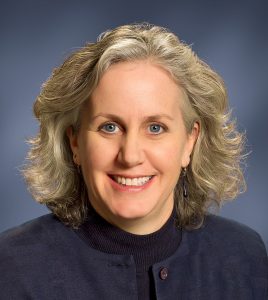
Paula Littlewood is Executive Director at Washington State Bar Association. Paula Littlewood joined the WSBA staff as deputy director in September 2003 and became the executive director in May 2007. She received a bachelor’s degree magna cum laude in political science and history at Claremont McKenna College. She studied law at the University of Washington School of Law, where she also served as editor-in-chief of the Pacific Rim Law & Policy Journal, and received her J.D. in 1997. She also earned a master’s degree in international studies, focusing on U.S.-Asian relations and studying Mandarin Chinese.
Littlewood served as a congressional intern at the U.S. House of Representatives, and later as a research assistant for the English Parliament’s House of Commons. She has worked as a finance director, field coordinator, and campaign coordinator for various political campaigns. She also taught English in Taiwan for 2 years and spent another 10 months traveling in China and Southeast Asia. After receiving her law degree, Littlewood served as an assistant dean at the University of Washington School of Law for close to five years. In this capacity she worked on raising funds for the law school’s new home, William H. Gates Hall, and was also responsible for the budget and other internal operations as well as media and government relations for the School. In 2002, she accepted a position as assistant head of school of the Telluride Mountain School in Colorado.
In 2003, Littlewood joined the WSBA as deputy director, assisting in all aspects of staff and budget management, program development, and supervision of administrative operations. She also served as the interim director of finance and administration for one year.
In addition to her full-time position as Executive Director of the WSBA, she is a member of the Executive Committee of the University of Washington School of Law’s Leadership Council; serves as Chair of the National Association of Bar Executives (NABE) Program Committee; is a member of the International Institute of Law Association Executives (IILACE) Executive and Program Committees. She recently served as a member of the American Bar Association’s Task Force on the Future of Legal Education and is currently serving on the ABA’s Commission on the Future of Legal Services.
___________________________________________________________
Greg McPolin is COO at Legal Managed Services and Managing Director at Pangea3. As Managing Director, Pangea3, Greg leads Pangea3 operations and continued growth in both India (Mumbai and Delhi) and the United States.
Greg joined Pangea3 in 2007 where he led client development for the litigation service offering and later assumed leadership of global client development and operations of the litigation service offering.
Greg has brought his extensive electronic discovery and strategic-project experience to bear during a long and varied career, which began after law school in the Washington, D.C. office of Howrey LLP. There he managed document review projects and productions for some of the largest second requests in
U.S. history for the firm´s antitrust practice group.
Greg subsequently spent six years at Seattle-based Applied Discovery, a major discovery services firm, as the inaugural manager of its East Coast office, where his clients included Fortune 500 companies and some of the nation´s most prestigious law firms. In this role, Greg frequently interfaced with government regulators at the U.S. Securities and Exchange Commission, the Department of Justice, and the Federal Trade Commission on behalf of his clients. Greg serviced and counseled clients while managing a sales and support staff in the New York City office.
Greg is a frequent speaker and author on the subject of electronic discovery and legal outsourcing best practices and is a member of the Hispanic National Bar Association. He received a J.D. and a Master of Studies in Environmental Law, cum laude, from Vermont Law School.
___________________________________________________________
Charley Moore is the Founder and CEO of Rocket Lawyer. His experience as a lawyer working with start up businesses, consumer services and small law firms taught him that something was missing – an affordable and simple way for everyone to understand and manage any legal situation. That’s why he started Rocket Lawyer.
Prior to founding Rocket Lawyer, Charley advised early stage companies, large enterprises and their investors on strategic partnering and corporate development strategy. Rocket Lawyer corporate partners include Google, Transamerica, SCORE, Hiscox, AON and Startup America.
Charley has been at the forefront of Internet corporate development since beginning his career as an attorney at Venture Law Group in Menlo Park, California in 1996. He represented Yahoo! (IPO), WebTV Networks (acquired by Microsoft) and Cerent Corporation (acquired by Cisco Systems) at critical early stages of their success and was the founder of Onstation Corporation (acquired by The Cobalt Group).
Charley graduated from the United States Naval Academy (BS), San Francisco State University (MS) and the University of California at Berkeley (Juris Doctorate). He served as a U.S. Naval officer and is a Gulf War veteran. Charley currently serves on the board of directors of the Northern California Public Broadcasting Corporation (KQED) and Grace Cathedral.
___________________________________________________________

Julie Pearl is Founder of The Pearl Immigration Law Group. Since founding her global immigration law firm two decades ago, Julie Pearl has pioneered service enhancements and received top honors for her contributions to the business immigration field. Julie also co-founded two software companies (Tracker Corp. and Pearl Travel Tech), which offer immigration case management and compliance systems to other law firms, Fortune 1000 companies, hospitals, and universities. Chambers Guide to Leading Lawyers names Julie the only “Star Individual” immigration attorney regionally and HR Executive Magazine consistently ranks her among the nation’s Top 20 Immigration Attorneys. She also received a 2013 Stevie® Award as “Woman of the Year – Business Services.”
Recent awards for Julie’s firm, Pearl Law Group, include a Stevie® Award for Most Innovative Company, the Super Lawyers National Pro Bono Award (one of only two firms nationwide awarded), and a global mobility industry award as Immigration Provider of the Year – Americas. Other accolades include a Cisco Systems Growing with Technology Award (Customer Service Category) and a chapter in The Moral Advantage, Getting Ahead in Business by Doing the Right Thing (Stanford University Project on Good Works) for following the “Golden Rule” with clients.
Julie has lived in five countries and speaks three languages. She received degrees from Stanford and Harvard Universities, and the University of California, Hastings Law School.
___________________________________________________________
Chas Rampenthal has been LegalZoom’s general counsel since 2003, managing the Company’s legal functions, including corporate transactions, litigation and regulatory matters, intellectual property, government relations, ethics and compliance. He oversees all legal initiatives for product quality, research and development and new markets. He also manages the company’s Legal Advisory Council. Prior to joining LegalZoom, Chas worked with a wide variety of technology and emerging companies to help them manage transactions such as venture capital financing, mergers, acquisitions and initial public offerings. Chas writes a monthly column for Inc. Magazine Online, and formerly co-hosted “Legally Bound” a call-in talk radio program in Los Angeles. He is qualified as a solicitor in the UK.
Chas earned his bachelor’s degree in economics and math studies summa cum laude from Southern Illinois University and his JD from the University of Southern California. Prior to his legal career, Chas served honorably in the United States Navy as an officer and naval aviator.
___________________________________________________________
Houman Shadab is Professor of Law at New York Law School, Co-Director for the Center for Business and Financial Law and Editor-in-Chief of the Journal of Taxation and Regulation of Financial Institutions.
Houman B. Shadab is a prolific and influential expert in financial law and regulation. His research focuses on hedge funds, derivatives, securitization, commercial transactions, and cryptocurrencies such as Bitcoin. Professor Shadab is a Director of the Center for Business and Financial Law and also serves as the Editor-in-Chief of the Journal of Taxation and Regulation of Financial Institutions. He often advises corporations, financial institutions, and startups on issues relating to compliance, litigation, and operations.
Professor Shadab has testified before the federal government several times, including before the Commodity Futures Trading Commission on Bitcoin derivatives and before Congress on hedge funds and the financial crisis at a hearing that included George Soros, John Paulson, and other leading figures from the hedge fund industry. Professor Shadab is often invited to speak at academic meetings and those for high level market practitioners and policymakers.
Professor Shadab is the author of numerous academic articlespublished in journals such as the New York University Journal of Legislation and Public Policy and the Stanford Journal of Law, Business, and Finance. He has also written chapters in books published by Oxford University Press and Wiley Finance.
Governmental authorities worldwide have cited Professor Shadab’s research, including the Delaware Court of Chancery, the 11th Circuit Court of Appeals, the U.S. Congressional Oversight Panel, and the European Parliament. He regularly shares his insights on his blog, Lawbitrage.
Professor Shadab has been quoted in numerous media publications including the New York Times, the Financial Times, and the Wall Street Journal and has appeared on Bloomberg Television. He serves on the Advisory Board of the NY Business Law Journaland is also a member of the New York and California bars. Prior to entering academia, Professor Shadab practiced law with Ropes & Gray in New York City and Latham & Watkins in Los Angeles.
___________________________________________________________
Yaacov Silberman is a Founding Partner and Chief Operating Officer of Rimon, focusing on the internal operations and infrastructure of the firm. Yaacov’s innovations with Rimon have appeared in a wide array of publications, including The Economist, The American Lawyer, AmLaw’s Law Technology News, Bloomberg, the California Daily Journal, the San Francisco Business Times, eLawyering and the National Post. He has been characterized as top innovator in the legal profession by the American Bar Association for his role in developing Rimon’s alternative business model. Yaacov has presented on innovations in law firm management and technology at Harvard Law School, Stanford Law School, UC Berkeley Law School, and UC Hastings College of the Law.
Yaacov’s practice currently focuses on private equity and leveraged buyouts, as well as securities representation of founders and executives of some of the most notable technology companies in the world, including Facebook, Dropbox, Twitter, SpaceX, Square, Jawbone, Zynga, Bloom Energy, Gilt Groupe and Solar City, among others.
Yaacov is a frequent volunteer for Legal Services for Entrepreneurs, a division of the Lawyers’ Committee for Civil Rights, and serves on the board of directors of Refugee Transitions. He is also a frequent speaker on the topic of cloud computing and Internet technologies in the legal industry.
Yaacov earned his BA from Yeshiva University and his JD from the University of Pennsylvania.
___________________________________________________________
Rochael Soper Adranly is General Counsel + Legal Design Lead for the international design firm, IDEO. A JD/LLM graduate of Duke Law School in Durham, North Carolina, she has been representing creative and innovative individuals as well as pursuing her own creative projects for over 15 years. She has also been a lecturer at the University of California at Berkeley School of Law, and an adjunct professor at UC Hastings College of the Law. She was recently featured in Modern Counsel magazine for her role as a creative counselor, walking the line between the rules based world of law and the non-roles based culture of innovation.
___________________________________________________________
Elizabeth Stark is an entrepreneur and thought leader on the future of technology. She is a founder of StartBitcoin.org, a group of entrepreneurs building the future of digital currencies and decentralized technology and a fellow at Coin Center. Stark previously taught at Stanford and Yale about the Internet’s impact on society, the economy, and the law.
Elizabeth has worked on tech policy issues for over a decade, and played an instrumental role in the Internet freedom effort that defeated SOPA/PIPA, engaging 18 million people worldwide. Stark was a longtime researcher at the Harvard Berkman Center for Internet & Society, covering issues such as Internet censorship, digital copyright, and privacy. She also cofounded the Open Video Alliance, which promotes innovation and free expression in online video, and has collaborated with industry leaders such as Mozilla and Google. Stark served as an entrepreneur-in-residence at Stanford’s StartX, advises numerous companies in the digital currency space, and is building new new ways promote innovation through distributed, trustless technology. She holds a J.D from Harvard Law School.
___________________________________________________________
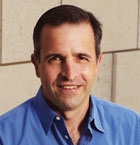
George Triantis is Professor of Law, Associate Dean for Strategic Planning and Associate Dean of Research at Stanford University. George Triantis is an expert in the fields of contracts, commercial law, business law, and bankruptcy. He was the Eli Goldston Professor of Law at Harvard Law School before joining the Stanford faculty in 2011, and he currently serves on the Visiting Committee of Harvard Law.
Among his contributions to legal scholarship, Professor Triantis pioneered the application of options theory to the study of contracts and commercial law, and authored a series of articles that develop principles of contract design. His recent publications concern the link between contract design and dispute resolution, the design of legal remedies in commercial contracts, the impact of bargaining power on contract design, and the forces of disruption and innovation in transactional legal practice. He is also the coauthor of the book Foundations of Commercial Law (Foundation Press, 2009).
Triantis began his teaching career in 1989 as an assistant professor at the University of Toronto Faculty of Law and Faculty of Management, and since then, was a member of the law faculties at Virginia, Chicago and Harvard.
___________________________________________________________
Claret Vargas is the Executive Director of the Stanford Human Rights Center. She has extensive experience in Alien Tort Statute litigation and class action litigation to protect the rights of employees. At the Human Rights Center, she focuses on business and human rights, the intersection of human rights and the environment, the inter-American system, labor conditions, prison conditions and indigenous rights. She is part of a Stanford Law School team producing an online course on international human rights. Claret researches mechanisms for the implementation of human rights norms, and she has conducted fact finding missions and archival research in Guatemala, Indonesia, Bolivia, and elsewhere. In collaboration with Bogotá-based NGO Dejusticia, Vargas works on developing tools and fora for innovation in human right teaching, training, and practice. Vargas earned her B.A., M.A. and Ph.D. from Harvard University. She earned her J.D. at Harvard Law School.
___________________________________________________________
Bart Verheij is a tenured lecturer/researcher at the University of Groningen, Institute of Artificial Intelligence and Cognitive Engineering (ALICE), Faculty of Mathematics and Natural Sciences, where he participates in the Multi-agent systems research program.
In the academic year 2013-2014, Bart was resident fellow at Stanford University. I participated in CodeX – the Stanford Center for Legal Informatics, a collaboration between the Stanford AI Lab and Stanford Law School, where he is now listed as affiliated faculty.
Bart have an MSc degree in Mathematics (University of Amsterdam) and obtained his PhD degree at Maastricht University, Faculty of Law, on a dissertation about the formal modeling of legal argumentation.
His research focuses on artificial intelligence, argumentation and law. He currently lead a research project on the connections between arguments, scenarios and probabilities in forensic reasoning with evidence, funded by the NWO Forensic Science program (2012-2016).
In 2014, Bart co-organized the event Trial With and Without Mathematics at Stanford University. In 2013, he was an invited visiting lecturer at the Institute of Logic and Cognition, Sun Yat-Sen University (Guangzhou, China). He served as program chair of the Fourteenth International Conference on Artificial Intelligence and Law (ICAIL 2013, Rome) and of the Fourth International Conference on Computational Models of Argument (COMMA 2012, Vienna). He is a member of the executive committee of the International Association for Artificial Intelligence and Law (IAAIL) and of the steering committee of the international conference series on Computational Models of Argument (COMMA).
___________________________________________________________
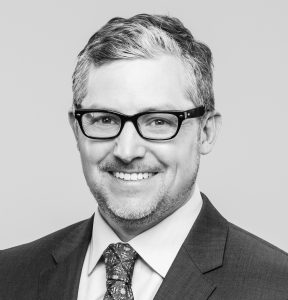
Joshua Walker is a Cofounder and Senior Fellow at Codex—which he also served as founding Executive Director. Previously, he was Chairman, CEO, and Chief Legal Architect of Lex Machina, Inc.; which he cofounded while serving as Executive Director of its Stanford predecessor project, the IP Litigation Clearinghouse. Joshua has taught at Stanford and Berkeley, including “SIPX” and “IP Strategy, Decision Making, and Analytics”, respectively. His legal designs are used all over the world in both litigation and transactional contexts. Joshua received his J.D. from the University of Chicago Law School and his A.B. from Harvard College, m.c.l. Joshua is currently IP Counsel at Simpson Thacher & Bartlett LLP and Faculty Director of the Berkeley Informatics Lab. Since 2001, he has helped clients in the financial (e.g., JPMorgan), technology (e.g., Facebook), innovation (e.g., Ideo), and government (e.g., USGAO) sectors solve complex problems in intellectual property and data rights (i.e., “cyber”, “privacy”).
___________________________________________________________
Aaron Wright is the founder and director of the Cryptocurrency Research Group and directs Cardozo Law School’s Tech Startup Clinic. Before joining Cardozo’s faculty, Professor Wright sold a company to Wikia, Inc., the for-profit sister project of Wikipedia, where he ran Wikia’s New York office, served as General Counsel and Vice President of Product and Business Development, and had helped build an open source search engine. Professor Wright has also practiced at several prominent law firms, including Patterson Belknap and Jenner & Block, and clerked for the Honorable William J. Martini of the U.S. District Court for the District of New Jersey. He has a forthcoming book about blockchain technology and the law (co-authored with Primavera De Fillipi) that will be published by Harvard University Press.
___________________________________________________________
Oren Yakobovich is social entrepreneur working at the intersection of human rights and film-making for 20 years. He is a leading voice on how to use visual information to create sustainable lasting positive change in areas of conflict. He co-founded Videre in 2008, an NGO with ground breaking methodology to equip oppressed communities with customized technology to uncover information from places where media can’t or won’t go. Before founding Videre, Oren led the video department at the Israeli human rights organization B’Tselem. At B’Tselem, he developed ‘Shooting Back,’ a video project that has trained hundreds of citizens in the West Bank that lives in the most dangerous places to use cameras to fight for justice. The project won several awards, including the One World Media award and the International Media Award’s Cutting Edge Prize. Prior to his work with human rights NGOs, Oren made several documentaries mostly focusing on political and social issues. Oren served in the Israeli army as an officer in an infantry unit, becoming a conscious objector after witnessing injustice in the Occupied Territories and serving a period of time in the army jail. A sought-after expert on using technology to expose human rights violations, Oren is frequently called upon to brief civil society, government, international organisation and media decision-makers. Oren is an Ashoka fellow.
___________________________________________________________
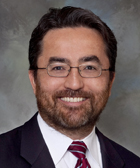
James Yoon is a practice development leader in the patent trial and litigation practice at Wilson Sonsini Goodrich & Rosati. James has 20 years of experience as a trial lawyer, patent and intellectual property litigator, and counselor. He has litigated over 100 patent cases and has tried numerous cases in federal courts, state courts, and at the International Trade Commission.
James has an active IP counseling practice. He has advised over 40 companies on IP issues in a wide variety of transactions, including patent license agreements, patent purchase agreements, private equity investments, initial public offerings, and corporate mergers. As part of these transactions, James is frequently involved in IP risk assessments and valuations.
James served as a member of the committee that developed the original and the revised versions of the Model Patent Jury Instructions for the Northern District of California. He is an adjunct professor (Lecturer-in-Law) at Santa Clara University School of Law, where he teaches a course in patent and trade secret litigation. Additionally, James is a Lecturer-in-Law at Stanford Law School, where he is a trial advocacy instructor and teaches an economics course on the forces transforming the private practice of law. He has published numerous scholarly and professional articles and is a columnist on patent law and litigation for the ABTL Report of the Northern California Chapter of the Association of Business Trial Lawyers (ABTL).
In 2013 and 2014, James was listed in the International Who’s Who of Patent Lawyers. In 2009, 2010, 2011, 2012, 2013, and 2014, he was selected for inclusion in Northern California Super Lawyers in the field of Intellectual Property Litigation. In 2006, Bay Area Lawyer Magazine named James one of the “Top Lawyers in the Bay Area” for Intellectual Property law.
James has served on numerous firm committees. He is a current member of the Compensation Committee and has previously served on the firm’s Policy, Partner Nominating, Business Development, and Associate Development committees.
James is a member of the board of directors and a co-chair of the Partner Committee of the Asian Pacific American Bar Association Silicon Valley (APABA-SV). He is also a member of the board of directors of the Asian Pacific American Bar Association Silicon Valley Charity, a member of the board of directors of the Palo Alto Bar Association, and a member of the High Tech Advisory Board for Santa Clara Law School.
Prior to joining the firm, James served as a law clerk to Chief Judge Alan C. Kay in the U.S. District Court for the District of Hawaii. He was previously an electrical engineer for General Motors Corporation, where he worked for many different operations, including the General Motors Technological Center (Warren, Michigan), Opel Motors (Russelsheim, Germany), Vauxhall Motors (Luton, England), and GM’s Cadillac Assembly Plant (Detroit, Michigan).

